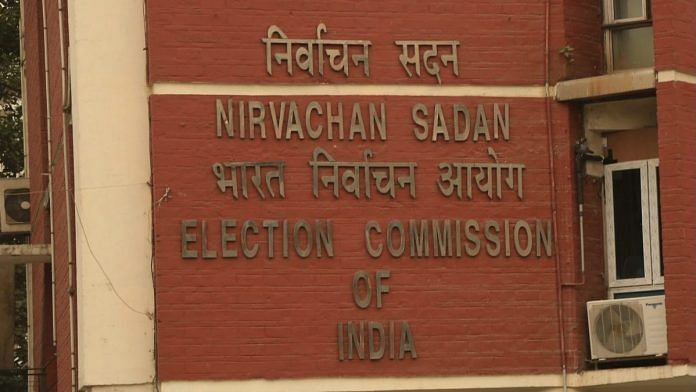The EC has a formidable reputation to maintain
Gopalkrishna Gandhi | Distinguished professor of history and politics, Ashoka University
Hindustan Times
Gandhi argues that the Election Commission (EC), much like the Supreme Court (SC), has a “formidable reputation to maintain” given how this election has been the most “verbally abusive” and divisive in India’s history. Indians have trusted EC and SC, but Gandhi finds it “astonishing” how the former is in danger of losing that trust, following its recent clean chits to Prime Minister Narendra Modi and BJP president Amit Shah.
This election is as much about judging the EC’s performance as it is about incumbents seeking mandates. Can EC get Modi and Shah to admit their mistakes, the way the SC got Rahul Gandhi to admit his for the ‘chowkidar chor hai’ comment?
Is the future of Indian democracy secure?
Mohammed Ayoob | Distinguished emeritus professor of International Relations, Michigan State University
The Hindu
Ayoob is struck by the “disconnectedness” between the concerns of “liberal elites” and those of the majority of Indian voters. While the former has been obsessed with issues like the “erosion of institutions, the rise of majoritarianism, populist and authoritarian tendencies”, most voters are preoccupied with jobs, caste and community, and hyper-nationalism. BJP has used the Pulwama-Balakot incidents “shrewdly” for electoral purposes, he adds. These factors raise the risk of authoritarianism, which could be reinforced by the belief of many that a “strong leader” is needed to run the country. These points, he writes, don’t “bode well” for the future of democracy in India.
A new poriborton
Mukulika Banerjee | Author and inaugural director of London School of Economics, South Asia Centre
The Indian Express
Banerjee says two villages in West Bengal — Madanpur and Chisti — have made her understand the changing nature of politics in the state. The celebration of Ram Navami and of Hanuman, not celebrated earlier, has startled her. Young men, on motorcycles carrying red flags of Hanuman with “Jai Shri Ram” inscribed on them, tell her they will vote for Modi. Trinamool Congress remains strong but BJP has managed to draw support from young men in “traditional Left Front households”. This younger generation is not concerned with Hindu religion and faith — they are looking to acquire a new muscular political identity.
Political ideology vs lived reality
D. Raja | MP and national secretary of CPI
The Indian Express
Raja writes that despite protection granted to people of all faiths by the Constitution, attempts are afoot to create a monolithic identity for Hindus and subsume all other religious minorities under the Hindu fold — reflected in RSS’s “narrow interpretation” that everyone born in India is a Hindu.
Hindutva, he argues, uses Hinduism to create a sense of fear for other religions and cultures. The use of religion in politics, to win popular support, has seen religion play a vital role in policy-making — the Citizenship Amendment Bill, is one glaring example of this.
Age of unreason
Arghya Sengupta | Research director, Vidhi Centre for Legal Policy
The Telegraph
Sengupta says “battle-hardened” Mamata Banerjee’s reaction to an “innocuous post” of morphed photo by BJP’s Priyanka Sharma indicates two things: the inability of the political class, sections of media and others to understand social media, and to take posts “excessively seriously”. Second, the “democratic compact” between the State and people has reached a “breaking point”. Even the Supreme Court asked Priyanka to apologise for her post in a “balancing act” which failed to reinforce the fundamental right to free speech. Bengal today, she writes, has become a place where reason has “decisively lost its way”.
Who wants a central bank job?
Amol Agrawal | Faculty at Ahmedabad University
Business Standard
Agrawal wonders whether the central bankers’ jobs remain coveted today, when their authority is being compromised in interesting ways across the world by elected governments. Agrawal draws a parallel between the circumstances that led to the resignation of the governors of the central banks of Cyprus and India. He adds that “central bank independence may be an important economic idea, but its spirit lies with the government”. He warns potential aspirants that in this coveted job, “prestige could quickly turn into nightmare” as governments assert their supremacy at a time of rising protectionism and nationalism.
Get Brave, New World
Ajay Chibber | Visiting scholar, Institute for International Economic Policy, George Washington University
The Economic Times
Chibber writes that India’ new government will have to navigate through many challenges: the uncertainty of the US-China trade spat becoming a full scale war, the rising tensions in the Gulf and the restrictions on oil imports from Iran which reduce India’s options, reviving private investment and a slump in exports.
The new government should encourage private investment and boost public investment by selling state-run enterprises. To increase exports, he argues that promotion should be taken on a “war footing”. He signs off hoping that there will be optimism and a new approach, post-elections.
Let’s redesign our economic model for sustainable growth
Himanshu | Associate professor at Jawaharlal Nehru University
Mint
Himanshu stresses on the need for developing an Indian model for growth that is just and inclusive. The current model remains a “model of crisis-driven responses rather than a coherent model based on a concrete assessment of the needs of a fast-changing economy”.
The long spell of rural distress is unlikely to end anytime soon and unemployment among the youth is a real problem. The economic model, followed by both the major political parties, has given “preference to large corporate” and serves the interest of finance capital “at the cost of workers and farmers”.



